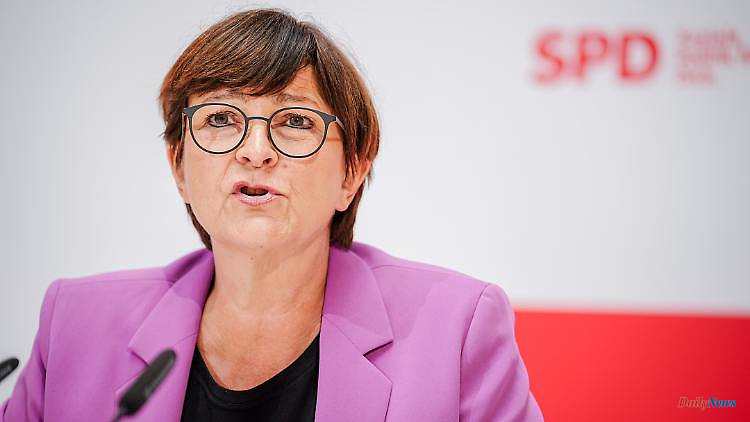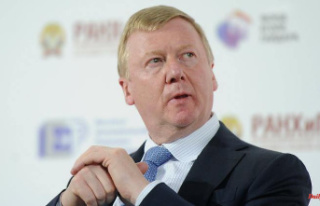The question of whether companies that benefit from the energy crisis through no fault of their own should be additionally taxed splits the traffic light. SPD and Greens advocate for it, but the FDP waves it off. It is said that such a tax would open the floodgates to arbitrariness by the state.
In the traffic light coalition, the dispute over an excess profit tax continues to smolder. While the SPD and the Greens plead for their introduction, the FDP continues to block the proposal. SPD chairwoman Saskia Esken is drumming particularly loudly for the proposal. Relief for consumers could also be counter-financed by an excess profit tax for companies "that benefit from the crisis without their own additional service," she told the "Augsburger Allgemeine". "Many European partners have shown us how and successfully introduced an excess profit tax."
Chancellor Olaf Scholz announced on Monday through his spokesman that an excess profit tax was "currently not planned" and referred to the coalition agreement, but it was "completely normal" that different ideas were discussed in the political arena and within the coalition . Esken has been calling for an excess profit tax for a long time, and Federal Economics Minister Robert Habeck from the Greens has also signaled support for the idea.
Many large electricity companies are currently earning above average "because they can sell their electricity mix at the currently highest market price, even if their cost mix does not justify these prices at all," Esken explained. Customers rightly asked themselves "the question of fairness if they are supposed to avert a collective risk through massively higher prices, while at the same time large energy companies are making very high profits and distributing them to their shareholders".
The FDP reiterated its rejection of the concept. "It's time to bury the debate about the excess profit tax once and for all," General Secretary Bijan Djir-Sarai told the "Rheinische Post". An excess profit tax "would open the floodgates to arbitrary taxation measures by the state," said Djir-Sarai, picking up on an argument put forward by FDP leader and Federal Finance Minister Christian Lindner. "That would be the end of the social market economy."
Rejection also came from the President of the Munich Ifo Institute, Clemens Fuest. "I don't think much of the idea of introducing excess or crisis profit taxes now," he told the "Rheinische Post". "Those who make high profits during the crisis are already paying correspondingly high taxes. I don't think it makes sense to introduce an additional tax."
Some companies are currently making high profits "because they made provisions in times when others didn't think much of it and invested in the development of oil and gas wells, for example," explained Fuest. "The fact that they did that helps us today - without these investments the prices would have been even higher." Other companies would just be lucky. "But it is ultimately not possible to define who makes 'undeserved' profits," the economist said.












